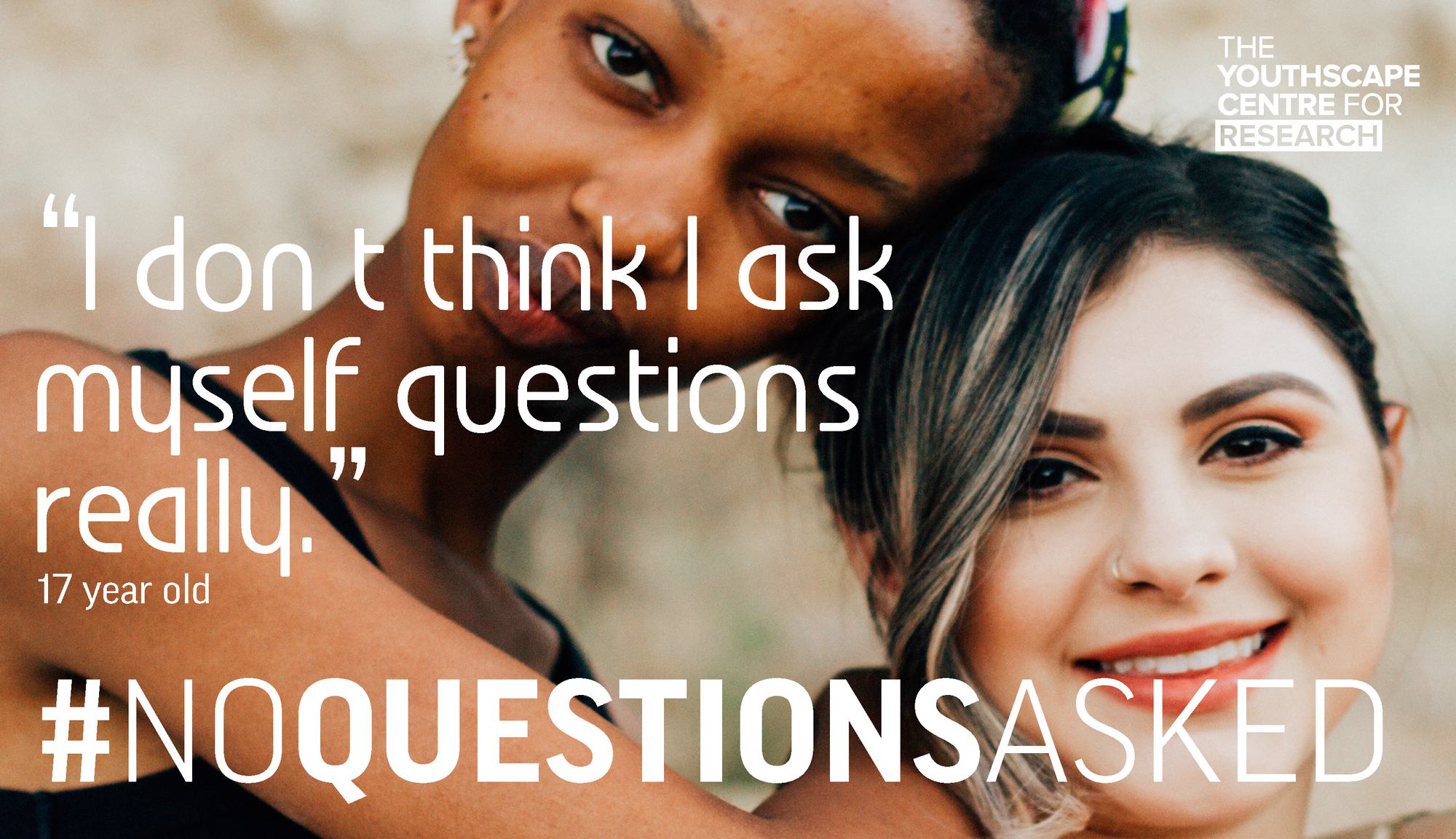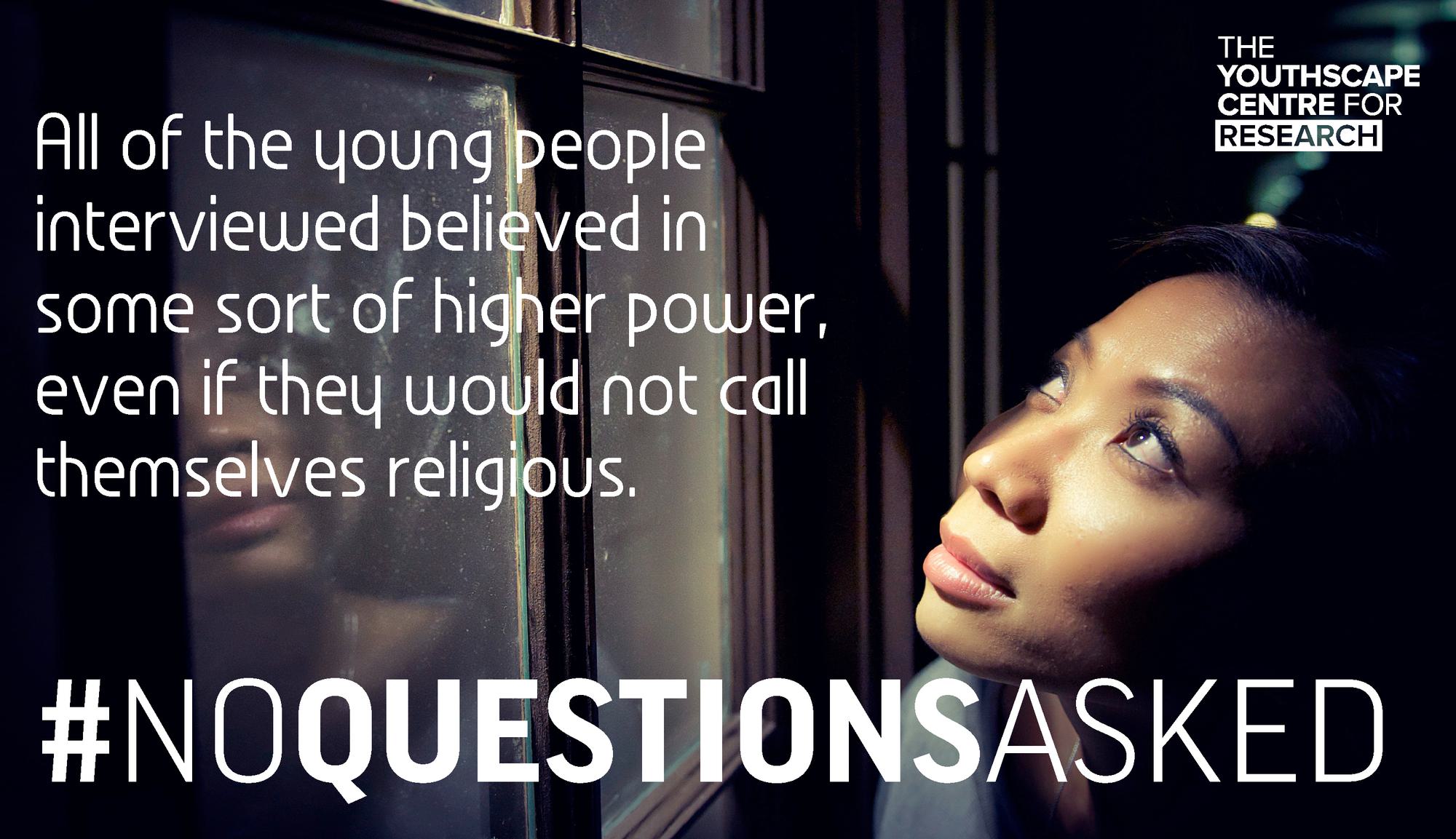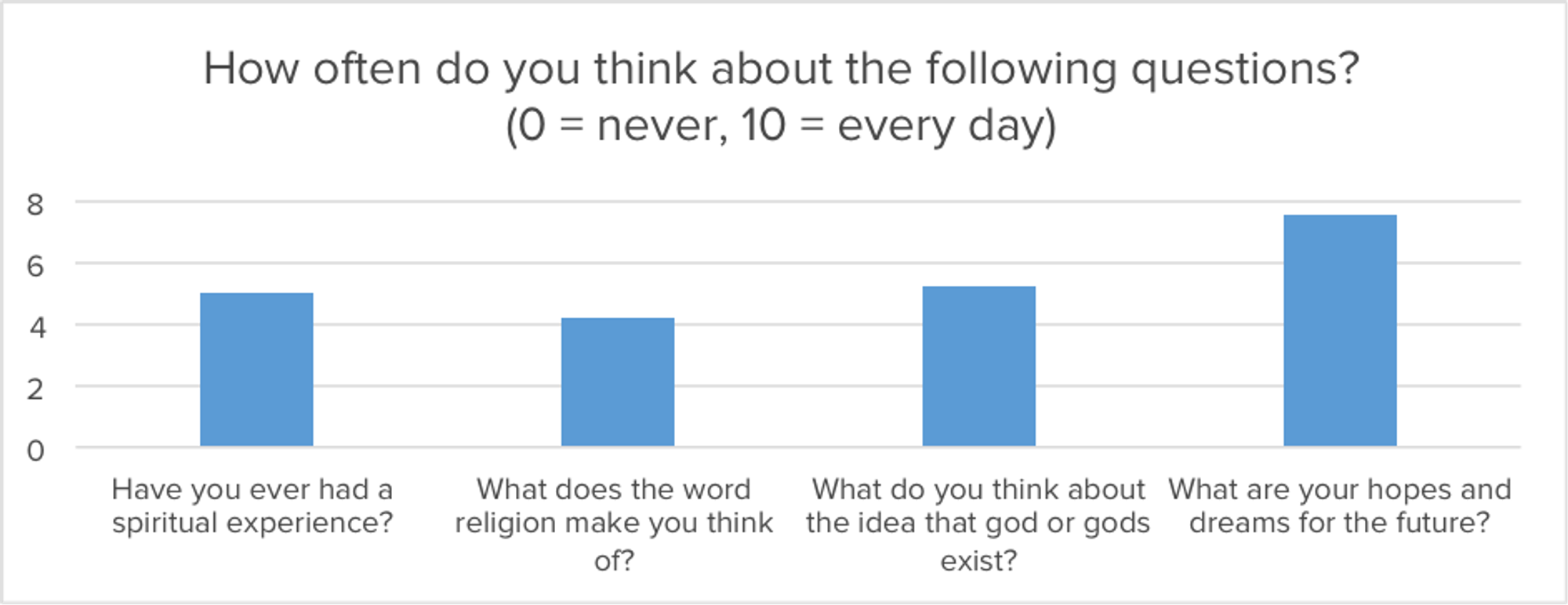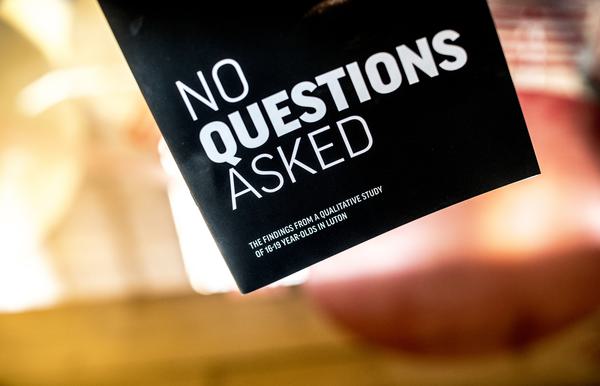When it comes to religion, do young people even have any questions? This is the second post presenting the key findings from our research project No Questions Asked.
The aim of our latest research project, No Questions Asked, was to discover what questions young people have about God, faith and religion. More than this, we wanted to find out if they were questioning at all, and if not, why not.
In general, we had to work quite hard to get questions from the young people we spoke to. The following response from Mulkina was fairly typical of the interviews:
Interviewer: Do you have any questions..?
Mulkina: I don’t know. I don’t think I ask myself questions really.
So why were the young people not asking questions about God, faith and religion? There were five main reasons why the young people we spoke to did not have questions about God, faith or religion, from what they told us: questioning is disrespectful, ‘we’re all the same’, beliefs are personal, religion is practical not abstract, and religion is not a big concern.

1. Questioning is disrespectful
We were surprised to find a lack of questioning among some of the religious young people in our sample. For some of the religious young people, this was due to what they perceived as active discouragement from the religious communities they are part of, or for fear of what would happen if they aired their questions publicly. Take the following example from Ammir’s interview:
Interviewer: Are you comfortable talking about any of those things that you don't have answers for at the moment?
Ammir: Not really.
Interviewer: Okay, yeah.
Ammir: Yeah, not even to my parents. I wouldn't- You know, it's just something for me to--
Interviewer: So, it's just some internal wrestlings there?
Ammir: Yeah, I wouldn't really talk about it publicly or even privately, it's just something for me to figure out, something for me to, you know, accomplish later.
Interviewer: Yeah, and do you ever talk to God about those things?
Ammir: Not really, again.
2. We’re all the same
Following on from the respectfulness (or disrespectfulness) of questioning, the young people were keen to assert their acceptance of others, with many expressing the sentiment that ‘we are all the same’. In some cases, this seemed to arise from confusion around religious beliefs, in some cases was the result of pluralistic understandings of religion, and in other cases seemed to arise from a desire to demonstrate tolerance and acceptance. Some of the young people seemed to be avoiding distinctiveness so as not to ruffle any feathers or raise any questions for other people, and were keen not to stand out as ‘religious religious’ . In a culture where ‘we’re all the same’, and where differences are not highlighted or celebrated, questioning is flattened, and curiosity may not be sparked.

3. Beliefs are personal
Among the young people we interviewed, religion was not really talked about, and was seen as a private and personal thing. Therefore ‘spiritual’ moments were not reflected on, or talked about. The lack of live questioning among the young people could be linked to this, as they are not used to having conversations around God, faith or religion. The lack of conversations around belief and religion even extended to close family members, as evidenced by the following comment from Josh’s interview:
Josh: [Talking about his mum] I haven't really talked to her about it because I never fully found the time to. I never really had the opportunity to bring it up, but I know she considers herself a spiritualist.
4. Religion is practical, not abstract
When talking about religion and belief, the young people interviewed highlighted concrete and practical examples. This suggests that their engagement with faith is practical or ‘performative’ , in contrast to a faith or religion built on propositional belief systems: it highlights religious action in the everyday, involves a discourse of authenticity around practical action and a pluralistic approach to institutions and religious spaces . For example, the young people were interested in knowing more about the practical out-workings of faith in the everyday, such as why and how their Muslim friends fasted. It’s possible therefore that these young people are interested in questions about God, faith and religion, but the questions they have are primarily practical, as opposed to abstract (the majority of ‘apologetic’ style questions are abstract).
5. Religion is not a big concern
At the end of the interview, we asked the young people to rate from 0-10 how often they thought about the questions we discussed, and how important they were to them. The graph below shows their responses:

Although the above scores may seem positive (most questions were given 4s or 5s), here was an accompanying comment from Lucy, to give a flavour of what a 4 or a 5 really meant for her:
Lucy: It just makes me think of-- I feel like religion is not a big worry, just purely has to do with you and who you believe in, what God to you means.
There is a sense in which God, faith and religion are neither offensive nor something to be passionate about, ‘not a big worry’ in Lucy’s words. This dispassionate approach highlights another factor in the young people’s lack of questioning, as to be engaged and questioning suggests a desire to know the answers, and passion of some kind. It seems that God, faith and religion have low salience and low function in these young people’s lives , or in other words: God, faith and religion just aren’t a big deal.





